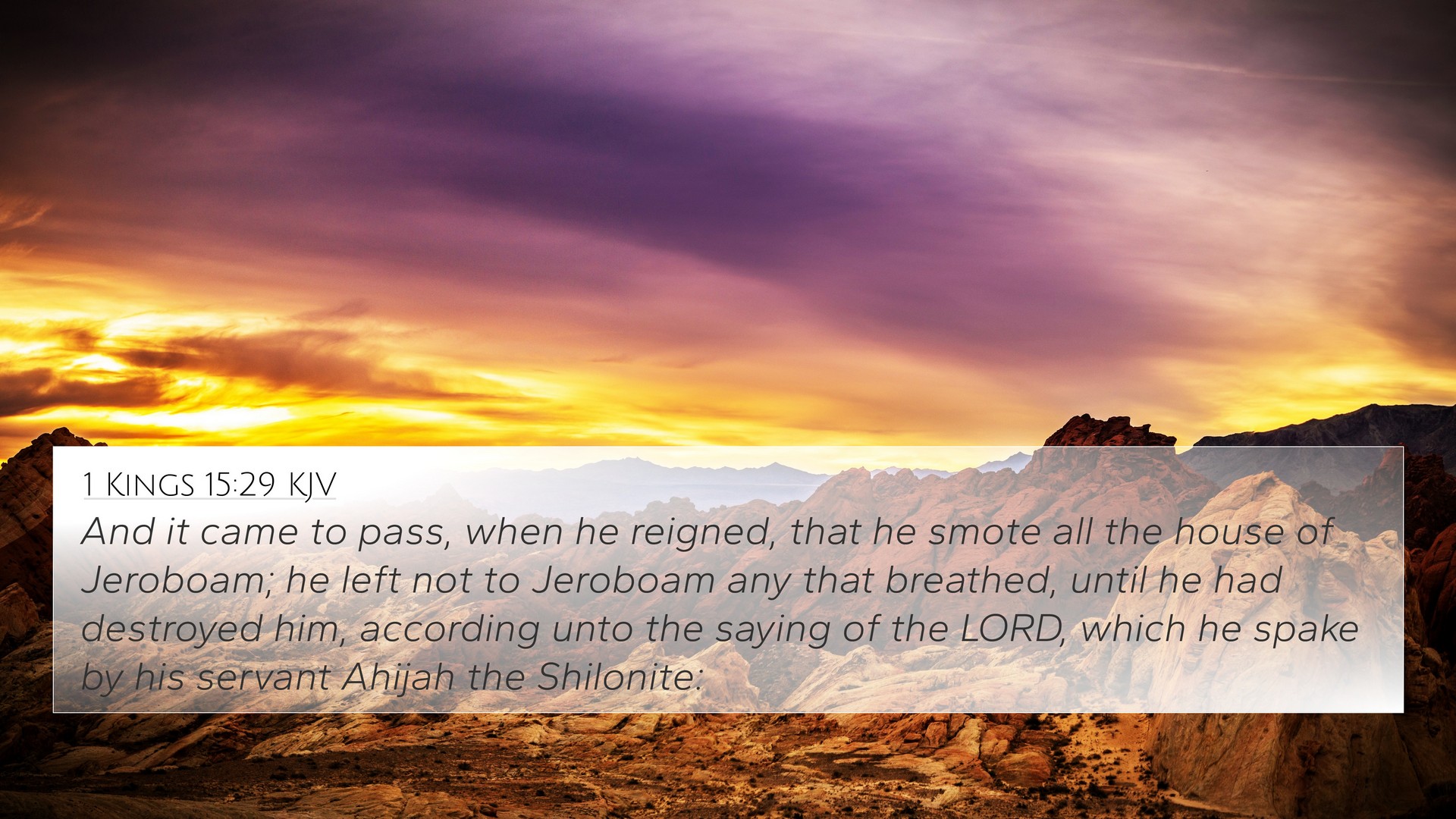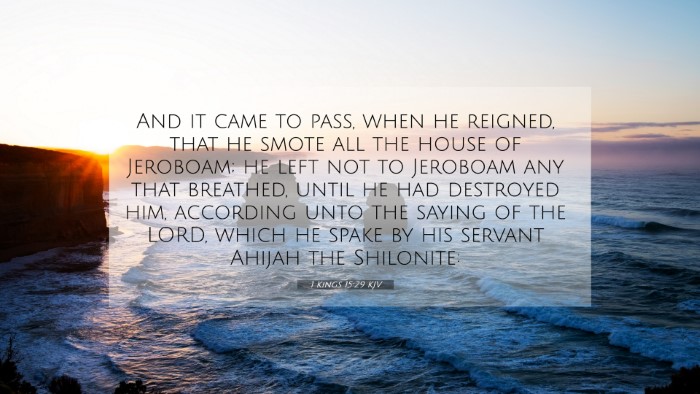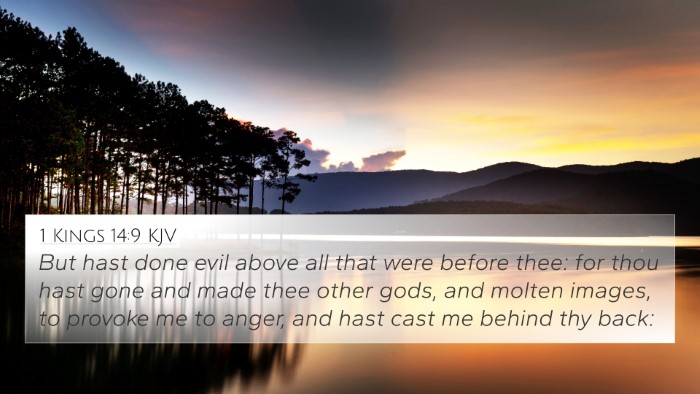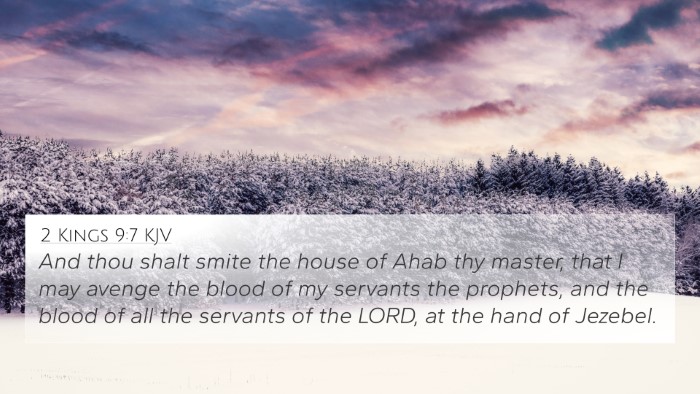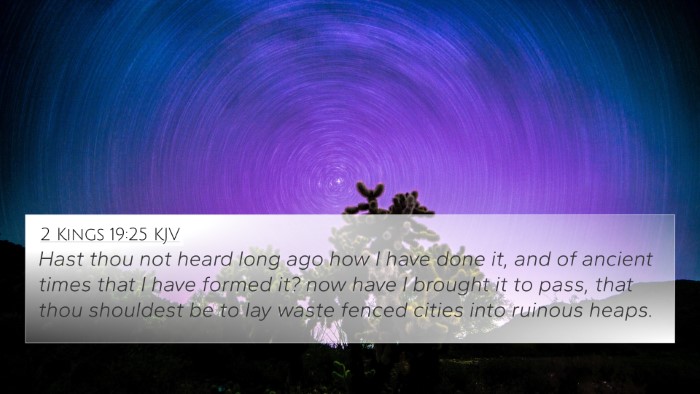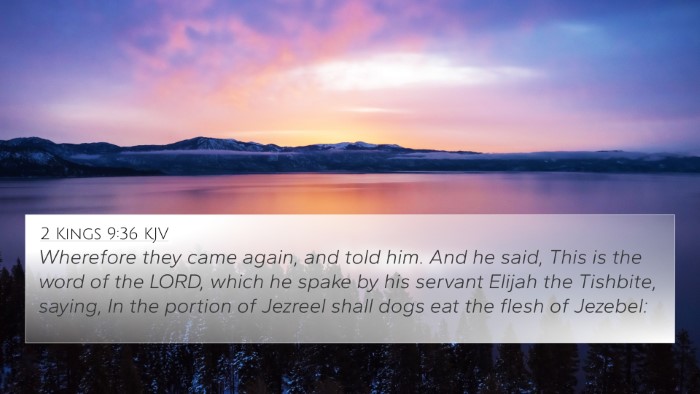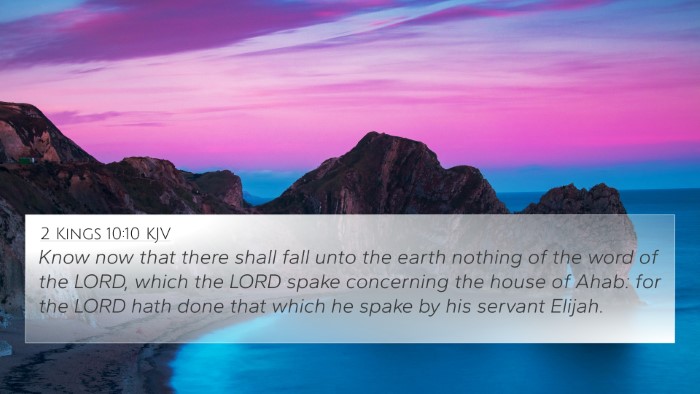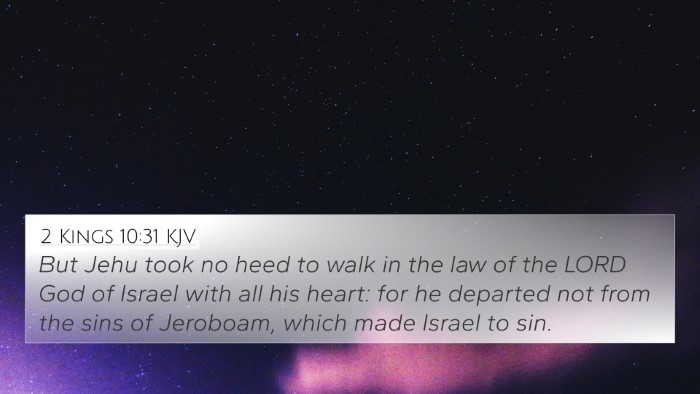Understanding 1 Kings 15:29
Verse: 1 Kings 15:29 states, "And it came to pass, when he reigned, that he smote all the house of Jeroboam; he left not to Jeroboam any that breathed, until he had destroyed him, according unto the saying of the LORD, which he spake by his servant Ahijah the Shilonite."
Summary of the Verse
This verse highlights a significant moment in the biblical narrative concerning the downfall of Jeroboam's lineage. The actions described depict the fulfillment of God’s judgment against Jeroboam, who was an emblem of disobedience and idolatry in Israel. The reference to Ahijah, the prophet, indicates that these actions are part of God's divine plan and a direct consequence of Jeroboam's sinful path.
Commentary Insights
-
Matthew Henry:
Henry emphasizes the prophetic nature of the events, noting how the destruction of Jeroboam's house was predestined as a punishment for leading Israel into idolatry. He highlights that this act serves as a warning against turning away from God.
-
Albert Barnes:
Barnes reflects on the importance of divine judgment fulfilling the words spoken by Ahijah. He points out the serious consequence of disobedience, drawing a parallel to the fate of other unfaithful leaders in Israel.
-
Adam Clarke:
Clarke dives into the historical context of this verse. He indicates that this event not only serves as a spiritual lesson but also as a historical transition in the governance of Israel, showing God's sovereignty over nations and kingdoms.
Thematic Connections
This verse is intricately linked to themes of judgment, prophecy, and the consequences of sin within the scriptural narrative. It is essential in understanding God's covenantal relationship with Israel and how disobedience leads to severe repercussions.
Cross-References
Here are several verses that relate to the themes and events described in 1 Kings 15:29:
- 1 Kings 14:10-11: Discusses the judgment pronounced against Jeroboam.
- 2 Kings 10:17: Illustrates the further destruction of the house of Ahab, paralleling the actions taken against Jeroboam's lineage.
- 2 Chronicles 13:20: Explains the fate of Jeroboam's rule and the lasting judgment due to disobedience.
- Amos 7:9: Prophetic confirmation about the destruction of the high places of Jeroboam.
- Hosea 1:4: Mentions the judgment against the house of Jehu, connected to the actions against Jeroboam.
- Isaiah 34:5: Here, God’s judgment is again portrayed, showing a broader theme of divine retribution.
- Romans 11:22: Reflects on God's goodness and severity, pertinent to the fate of the unfaithful.
Importance of Cross-Referencing
Cross-referencing Bible texts enhances our understanding of scripture. In studying 1 Kings 15:29, one can observe how similar themes manifest across different verses. Tools for cross-referencing, such as a Bible concordance or cross-reference guides, provide insight into how various passages interlink and support one another.
Practical Applications
For modern day readers, 1 Kings 15:29 serves as a somber reminder of the importance of obedience to God's commandments. It encourages reflection on personal spirituality and adherence to divine guidance. Additionally, understanding these connections can be beneficial for sermon preparation or personal study, revealing the broader narrative of redemption and judgment throughout the Bible.
Conclusion
In summary, 1 Kings 15:29 not only documents a historical event but also communicates profound spiritual truths about obedience and the consequences of deviating from God's ways. By engaging with various commentaries and cross-referenced verses, readers can deepen their insight into these themes and their relevance.
